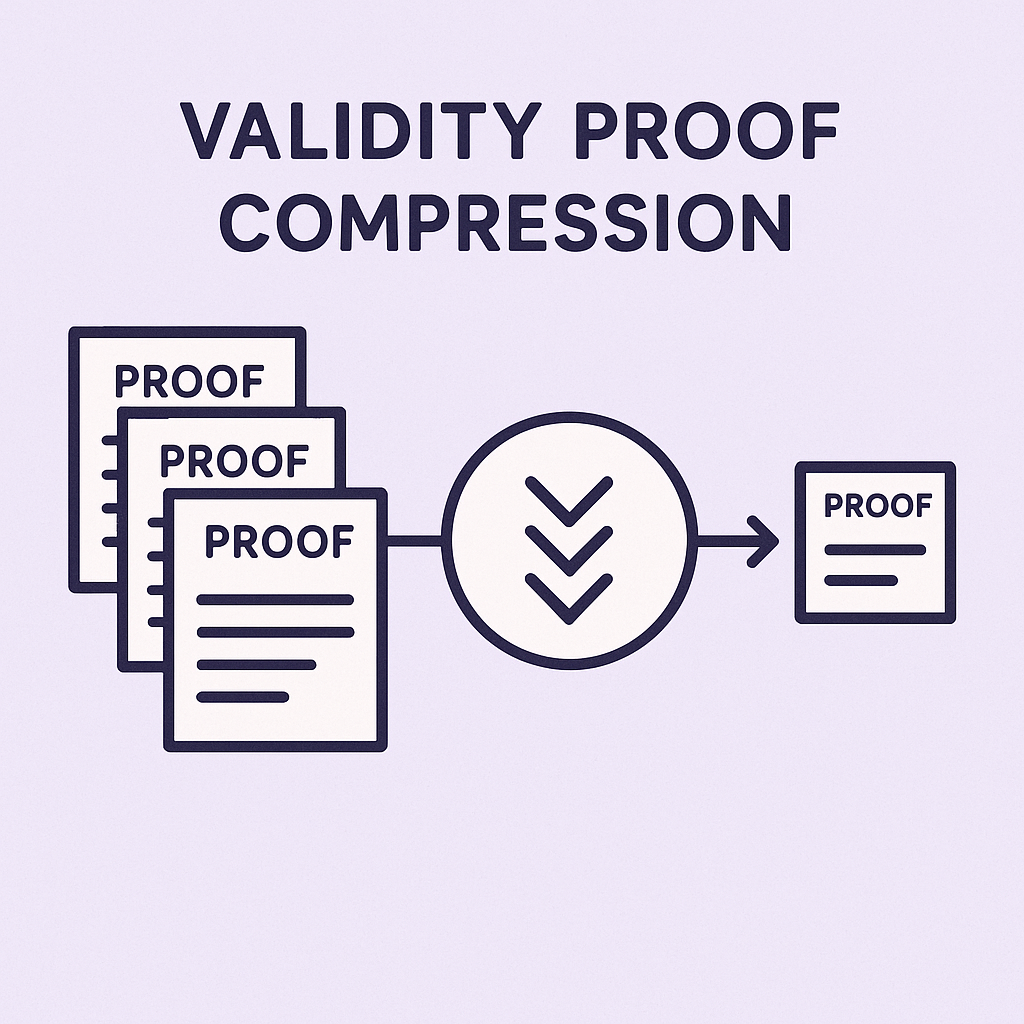Validity Proof Compression

In ZK-rollups and zero-knowledge systems, a validity proof confirms a batch of transactions is correct. But these proofs can be large or slow to verify. Validity proof compression is about making these proofs smaller, cheaper, and faster to verify — without compromising security.
Why It's Important:
- ✅ Faster Verification: Compressed proofs speed up settlement on Ethereum
- 📉 Lower Gas Fees: Smaller calldata = less cost for rollup users
- 🔄 Supports Recursion: Enables combining proofs into a single, minimal proof
- 🌐 Critical for Scaling: Essential to bring ZK tech to real-world usage
Techniques Used:
- Recursive SNARKs
- A proof verifying other proofs — compact and elegant
- Proof Aggregation
- Merges multiple proofs into one — lowers size drastically
- Proof Batching
- Verifies many inputs together in one shot
- Optimized Polynomial Commitments
- Math tricks (e.g., KZG, Halo2) to reduce size/time
Examples in the Wild:
- zkSync: Uses recursive SNARKs for major compression gains
- Polygon zkEVM: Compresses ZK-STARKs for EVM compatibility
- Scroll: Optimizing zkEVM proofs for Ethereum L1
- Succinct / zkVerify: Infra projects offering off-chain proof compression
- Nova, SuperNova: Recursive proof systems built for composability
Limitations & Challenges
- Heavy Computation: Compression often requires powerful hardware or long proving times
- Complex Engineering: Recursive proofs and aggregation are hard to implement securely
- Latency: In some designs, proof compression adds delay to finality
- Auditability: More complex math = harder for outsiders to verify
Conclusion:
Validity proof compression is the unsung hero of ZK scaling. Without it, rollups would be too heavy, too expensive, or too slow. With it, we’re unlocking a future where entire ecosystems run offchain, but settle with trustless finality on Ethereum in a single, elegant proof.
Comments ()